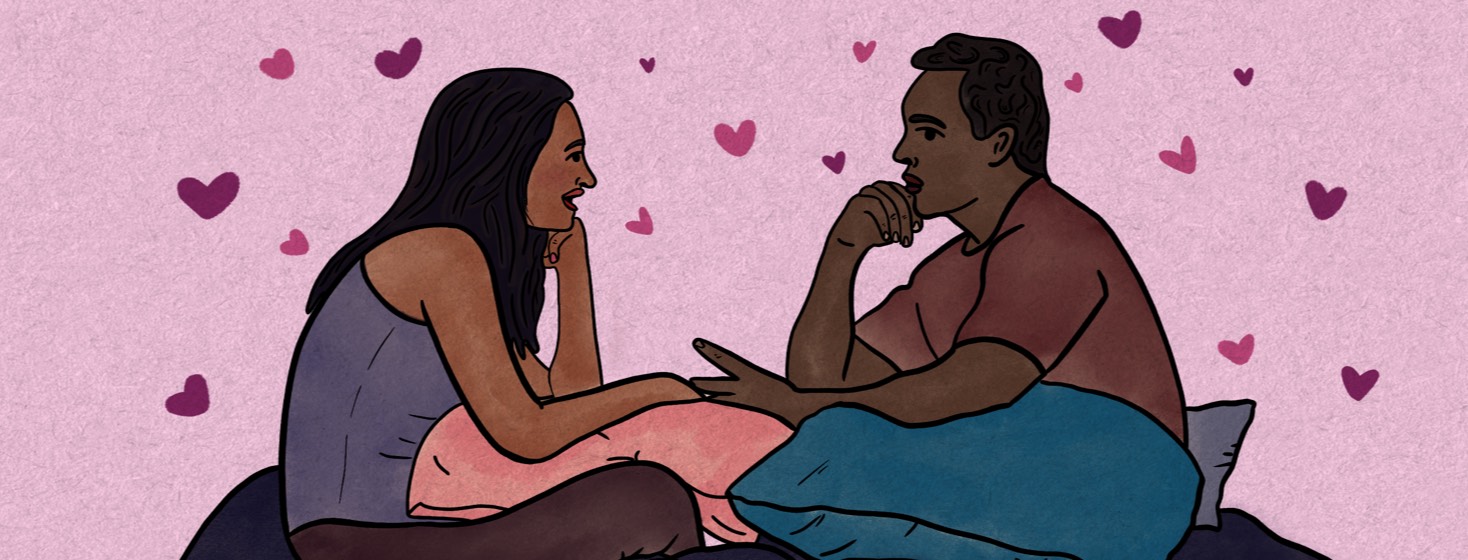How I Tell Men I Dated that I Have Lupus
A first date with a new romantic interest is enough to make anyone nervous. A dozen questions and insecurities jumble around in your mind. Will they look like their online profile pictures? Will they love my sense of humor, or will they think I’m weird? What if they aren’t into all the movies, hobbies, and TV shows that I’m into? What if they just don’t like me?
Fear of sharing a lupus diagnosis
But when you have lupus, you don’t only have to worry about whether the person you’re meeting will like the same things you do or share your political beliefs. You also wonder how they will react to your disease. Will they be understanding? Will they ask questions and learn about my disease? Will they be accommodating if I need to eat certain foods, rest often, or not go out in the sun?
When to “come out” about your disease to a new romantic interest is a personal choice. Some people prefer to tell their dates right away, and others would rather their dates get to know them as people first. But one thing is clear: if you are looking for a long-term relationship or if you plan on spending lots of time with this person, you will need to tell them about your lupus eventually.
Tips for telling partners about lupus
As someone who has dated online for years, I’ve had to have the lupus conversation many times. Here is how I “come out” to men I date about having a chronic illness.
I usually tell them after a few dates rather than on the first date.
I don’t tell men right away that I have a chronic illness not because I’m ashamed of it, but because I want them to see my personality first instead of just my disease.
I’m not just a lupus patient. I’m also funny, goal-oriented, and fun-loving, and I hope that the men I date see this about me.
Even if I feel shy or self-conscious telling someone new about my disease, I speak with confidence.
Telling potential romantic partners that I have a chronic illness never feels comfortable for me, even after doing it dozens of times. Still, I know that this conversation needs to happen if I want to have an open and honest relationship with this person.
I start by explaining what lupus is: an autoimmune disease that isn't contagious or visible and that can be managed with medication, but not cured. Then I talk about how lupus affects me on a daily basis. I mention the fatigue that prevents me from waking up before 11am, how eating healthy is important to managing my illness, and how I can’t do intense or sustained physical activity, like long bike rides.
I find that when I speak calmly and with confidence, it shows my dates that I’m not ashamed of my disease and that I’ve learned how to coexist with it.
I speak directly and honestly about the severity of my disease.
Because lupus is an invisible illness, my dates can’t see how severe my disease sometimes gets. I am open about how lupus has impacted my life during severe flares.
I tell dates about the life-threatening brain flare after which I had to spend a year relearning to walk and speak normally. It’s important to me not to minimize my illness so that if a date becomes a long-term romantic partner, he is aware that I might go through periods of serious illness.
I tell potential partners clearly what I need from them.
Sometimes, I need to sit down and rest. Stopping for coffee or food is a need, not a want. I often need to park in the handicap spot when we go out. I can’t eat greasy or fried foods. Dates with a lot of physical activity, like hiking, aren’t for me. A date that understands this and is accommodating might be a keeper.
There are good people in the world
In the years I’ve spent dating and “coming out” about my lupus to men, I’ve often worried that potential partners might be rude, dismissive, or simply not accept my illness. Many of us who have experienced rejection from family, work colleagues, or friends are afraid that everyone we meet will also reject us. But I’ve been surprised at how kind and understanding my dates have been after I’ve told them about my disease. It’s a reminder that there are good people in the world, and that we never know how helpful others will be until we ask.

Join the conversation